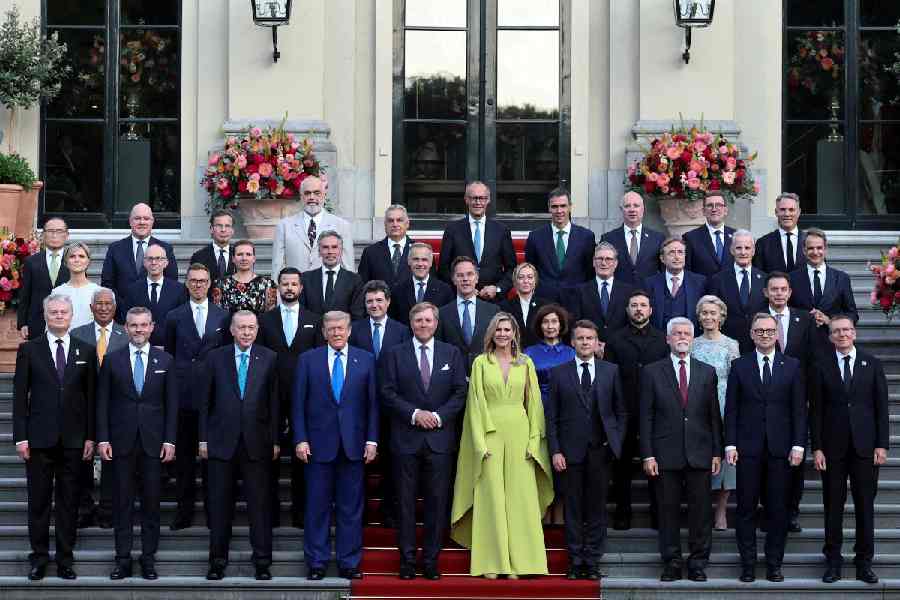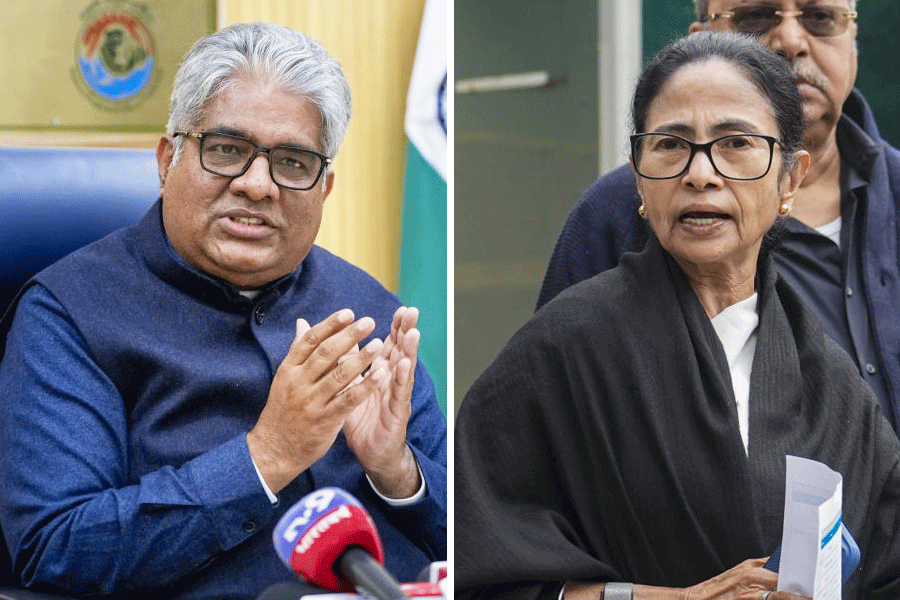The greatest catalyst for European unity in recent memory has been a man who views the continent with open contempt. Donald Trump arrived at the NATO Summit in The Hague like a monarch inspecting his vassals. In a gilded reception at the Dutch royal residence and an overnight stay that included breakfast with the Dutch king and queen, the parts of the NATO Summit that were most important for Trump were more reminiscent of Versailles than Brussels bureaucracy. In addition to the royal welcome, the NATO secretary-general, Mark Rutte, fawned over Trump, praising his “big win” in finally pushing NATO member states toward the long-elusive goal of spending 5% of GDP on defence. Rutte’s flattery bordered on grovelling: he even referred to Trump as “Daddy” at one point. And Trump, true to form, basked in it.
But underneath the gaudy pageantry and humiliating displays of deference was a profound shift — one with lasting implications not only for NATO but also for the future of Europe itself. Trump, who once called the alliance “obsolete”, may have unintentionally delivered the most significant push toward European unification since the founding of the European Economic Community in 1957.
Let’s be clear: getting European states to increase their defence spending has been a decades-long American frustration. Multiple US presidents, from Barack Obama to George Bush to Bill Clinton, urged NATO allies to shoulder more of the military burden. Yet it took Trump — blustering, menacing, transactional — to make it happen. His threats to abandon NATO, his disdain for “freeloaders”, and his open admiration for strongmen finally got Europe’s attention. The 5% pledge is now a reality. That’s not just a win for Washington — it’s a seismic development for Brussels.
In the short term, this bolsters NATO. In the longer term, it sets the groundwork for a more autonomous and coherent European defence identity. For decades, European defence has been hampered by a contradiction: it depended on the US for protection while simultaneously professing strategic autonomy. That contradiction is finally being forced to resolve itself. Trump has made it painfully obvious that Europe cannot depend on a mercurial US president to safeguard its security. The answer, increasingly, is more Europe — not less.
Part of the delicious historical irony here is that Trump, in his worldview, is a 19th-century man. He sees the globe as a chessboard of empires and tributes where power is measured in tanks, tariffs, and public acts of submission. He doesn’t understand the miracle of 20th-century Europe where, for the first time in centuries, a continent of bitter rivals chose demilitarisation, reconciliation, and interdependence over domination. Nor does he understand how good that has been for the US.
This defanging of Europe after World War II wasn’t just a security gift to the US — though it certainly made America’s rise to global supremacy easier, free from the competition of old continental powers. It also allowed Europe to build something extraordinary: resilient welfare States, robust labour protections, and universal healthcare. In many ways, the values of Franklin D. Roosevelt’s New Deal found more fertile ground in Europe than in America. While the US slipped into Cold-War militarism and a slow erosion of its social safety net, Europe made social solidarity the backbone of its post-war rebirth.
Trump, meanwhile, is waging war on what’s left of America’s social contract. His ‘Big Beautiful Bill’ — a cruel euphemism for deep spending cuts which passed just in time for Trump’s signature on US Independence Day, July 4 — will shred the already-thin welfare infrastructure in the US. This is not lost on Europeans. Even the most right-wing parties in Europe know that gutted welfare States are political suicide. The far-Right in Europe has learnt to package itself differently: not as libertarian deregulators like Ronald Reagan or Trump but as paternalist protectors of the native-born. Their version of social democracy is ugly —xenophobic, exclusionary, and ethnonationalist — but it still insists on the importance of State support. It’s welfare for the Volk.
And so, in this paradoxical moment, Trump’s extremism is forcing clarity. Europeans are watching the US — a country once romanticised as a land of opportunity — descend further into inequality, dysfunction, and ideological cruelty. They’re seeing the consequences of letting safety nets fray and labour protections erode, even as tariffs threaten far-Right ideological allies as well. Many, including those on the Right, are recoiling.
The rise of the far-Right in Europe is undeniable and deeply alarming. From Geert Wilders in the Netherlands to Marine Le Pen in France to Giorgia Meloni in Italy and the growing strength of the AfD in Germany, nationalist forces are on the march. But unlike their American counterparts, they rarely campaign on promises to gut the welfare State. In fact, they often portray themselves as the last defenders of the working class — so long as that working class is White and native-born.
That’s not to say Europe is immune to Trumpism. The migrant crises of 2015 and 2016, combined with inequality between western and eastern European Union states, provided fertile ground for xenophobia and reaction. It’s no coincidence that Hungary and Poland — where wages have long lagged behind those in their western neighbours — have been the epicentres of Europe’s illiberal turn. When average Hungarians earn half of what Austrians do, resentment is easy to stir. Immigration became the scapegoat; Brussels the villain.
But the Trump presidency — especially its second act — has made the endgame of that politics clearer. Europeans can now see what happens when far-Right populism wins: the rich get richer, the poor get punished, and chaos reigns. If anything, Trump’s reign is accelerating a continental reckoning. His behaviour is reminding Europeans what they stand to lose.
The reaction is not uniformly progressive. Some will double down on nationalist fantasies. But others — many others — are beginning to realise that the answer to Trumpism is not less Europe but more: more integration, more coordination, more solidarity. A European defence strategy. A European industrial policy. A European identity rooted not just in markets but in values.
Trump did not intend to become a midwife to European unity. He wanted to humiliate the continent, not empower it. He wanted tribute, not transformation. But history often plays such tricks. The threats he poses — to NATO, to the global order, to democracy itself — have made the costs of complacency unbearable. In response, Europe is moving — not quickly enough perhaps and not always in the right direction — but it is moving nonetheless.
It’s fitting that Trump, who admires kings and empires, may have inadvertently revived the oldest dream of the continent: Europa regina, not in the image of a single ruler but as a united front, forged not by conquest but by necessity.
So yes, Trump may be the best thing to happen to European unification in a generation. But only because he showed Europe how quickly everything could fall apart.
Carol Schaeffer is a journalist based in Berlin, Germany, and is a senior fellow at the Atlantic Council in Washington D.C.










